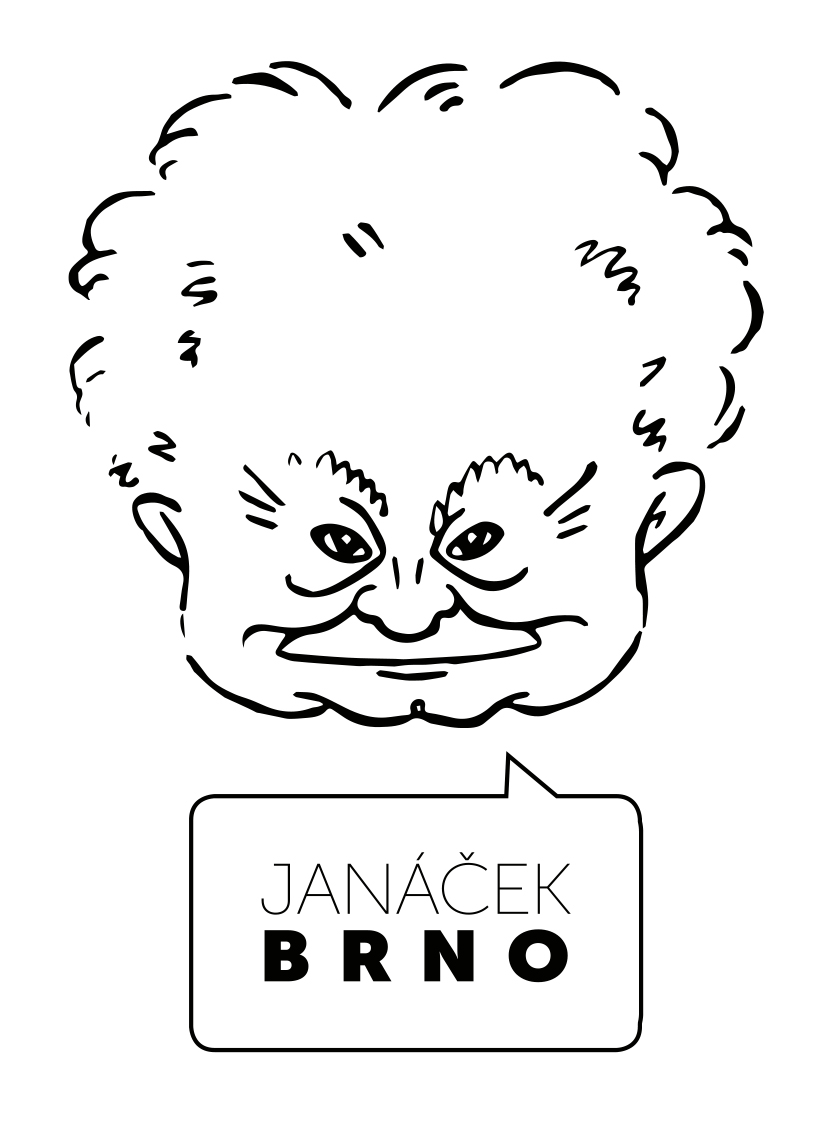
OSUD JW I/5
opera in three acts
libretto by Fedora Bartošová
1903-05, rev. 1906, 1907
premiere 13. 3. 1934 (Radio Brno, incomplete), 18. 9. 1934 (Radio Brno, complete), 22. 10. 1958 Brno (first staged production)
first edition Dilia, Prague 1964 (piano-vocal score), 1978 (full score, ed. Václav Nosek), Bärenreiter Prague 2015 (full score, piano-vocal score, ed. Jiří Zahrádka, critical edition)
Janáček was inspired to write this opera, which is set in a small town, by an encounter with a visitor he met during one of his visits to the Luhačovice spas, who told him the story of her life. It was one of only two of Janáček's operas which was not produced during his lifetime.
The subject for Janáček's fourth opera was not taken from literature on this occasion, instead he was inspired by the story of the life of a young lady he met during one of his visits to Luhačovice. Kamila Urválková came from a rich family and under pressure from her parents, was forced to break up with her poor boyfriend. The abandoned young man did not believe that she really loved him, he accused her of superficiality and fickleness, and as he was a composer, he took his revenge by writing an opera about their story called Kamila, which was even performed in Prague in 1897. The young man was the conductor and composer Ludvík Čelanský. Understandably, the part of the story which attracted Janáček the most was the fact that the main character was a composer, which was of course the only thing that would remain from the original story in the plot of the opera. Janáček himself wrote the story and it was versified into libretto form by the young teacher, Fedora Bartošová. Her inexperience as a librettist and the fact that Janáček sent the story to her in parts and did not even allow her to know the entire story in advance meant that that the resulting libretto was not of the highest quality. Janáček worked on the opera for over a year (1904-05, with revisions in 1906, 1907, 1914), and created a work which is unique and interesting from a musical perspective. He entrusted the premiere to the newly opened Vinohradý Theatre, though for various reasons the management delayed production and then in 1914 rejected it outright. The rather odd libretto was mainly to blame, and as Janáček could not find anyone willing to work on the text, he gave up on it being performed. It was not until 1934 that Janáček's pupil, Břetislav Bakala, arranged the radio premiere. The first staged performance of Fate was given in the Brno theatre in 1958 and in Stuttgart in the same year. The problematic libretto remains the main reason why Janáček's fourth opera is only rarely performed.
Opera synopsis
Act 1
At the centre of the attention of the spa guests in Luhačovice is the poetic Dr Suda with his friends Konečný, Lhotský and a young woman, Míla. A new guest arrives, the composer Živný. Everyone is surprised to discover that Živný and Míla know each other.
They all leave and only the composer Živný and Míla remain. Their relationship in the past had been thwarted by Míla's mother, who considered life with a composer as a beggar's existence. Živný wrote an opera about his unhappy life. Now, many years later, he discovered that he had falsely accused Míla of unfaithfulness in the opera; her son, Doubek, is in fact his child. Now Živný and Míla decide to start a new life together.
Act 2
Živný, Míla and young Doubek live together with Míla's unhinged mother. Živný sings excerpts from his opera. He now has to get rid of the part where he had earlier wrongfully denigrated Míla. Young Doubek asks his mother if she knows what love is. Míla knows only too well - love and her whole life is Fate - Fatum.
Life together with the mother is miserable. She is becoming increasingly deranged; she is being forced to live under the same roof with a man who she believes is only out for her money. The mother sees Živný as an evil raven. She wants to fly away from him, but when she falls from the balcony, she takes Míla with her. Živný is bereft at the loss of his wife. Lightning flashes as a portent of his unhappy fate.
Act 3
The students at a conservatory are singing a part from a new opera which was written by their teacher, Živný. The work is supposed to have its premiere that evening in the theatre, but the final act is still missing. The pupils ask him to tell them something about his strange opera. Živný passionately relates to them the origin of the work and the surprised students realize that the plot of the opera is in fact the true story of his life. Živný approaches the part where Míla dies... Suddenly a storm approaches in which Živný sees his dead wife. The stunned composer falls to the ground. The end of the opera remains unwritten in the hand of God, just as with Živný's fate.
